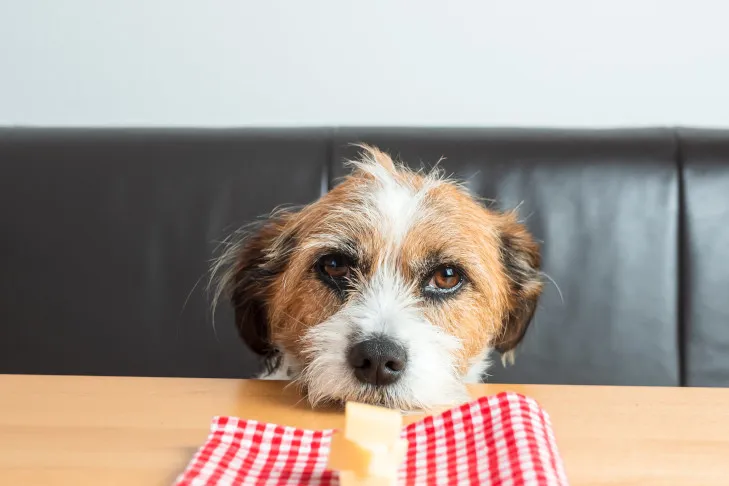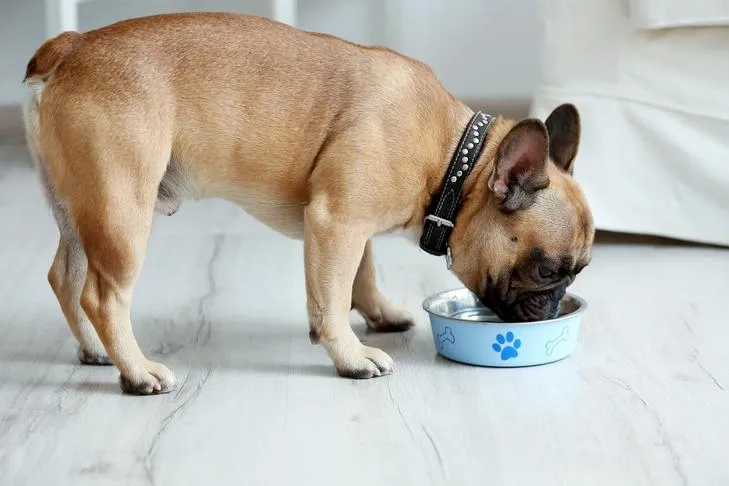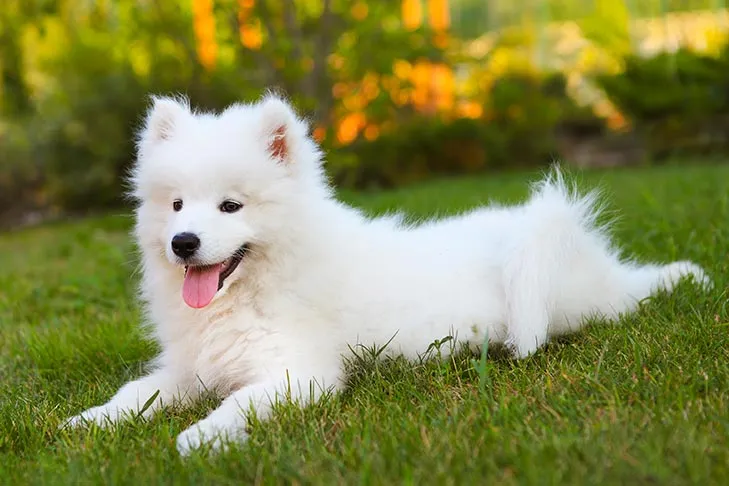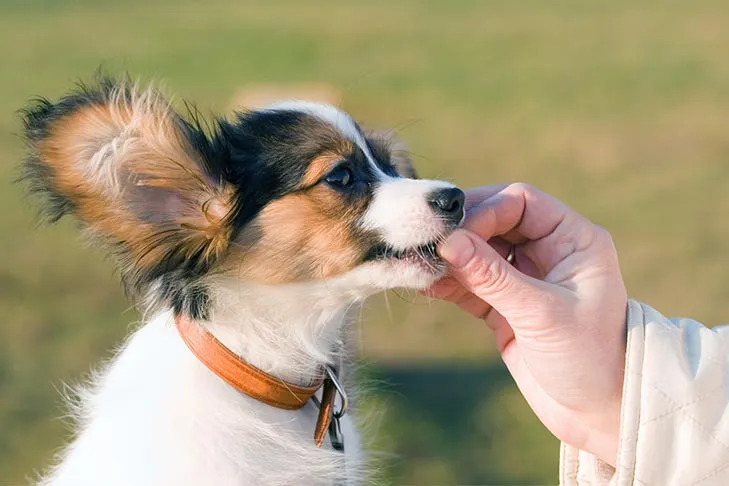As responsible pet parents, we constantly strive to provide the best for our furry companions, and that often includes sharing a bite or two from our own plates. While commercial dog food forms the cornerstone of a healthy canine diet, many human foods can offer safe, nutritious, and enjoyable treats for your dog when offered correctly and in moderation. Understanding what human foods dogs can eat is crucial to avoid upset stomachs, health issues, or even toxic reactions. This guide from Dog Care Story delves into a variety of common human foods that are generally considered safe for dogs, offering insights into their benefits, proper preparation, and important precautions.
Understanding Canine Nutrition and Sharing Human Foods
Before diving into specific foods, it’s important to grasp the fundamentals of canine nutrition. Dogs are omnivores, meaning their diet can consist of both plant and animal matter, though they thrive on a meat-based diet. While some human foods can supplement their nutritional intake, they should never replace a balanced commercial dog food formulated for their specific needs. Sharing human food with your dog should always be seen as a treat, not a meal replacement. When considering what dogs can eat human food, remember that moderation is key, and every dog is unique; what one dog tolerates well, another might not. For more specific insights into meal times, consider exploring what human food can dogs eat for dinner.
Safe Human Foods for Dogs: A Detailed List
Here’s a detailed look at common human foods that are generally safe for your dog to enjoy, along with essential tips for serving them.
Bread
Small amounts of plain, unseasoned bread are typically safe for dogs. It offers no significant nutritional benefits but won’t cause harm as an occasional treat. The primary concerns with bread are the presence of spices, high sugar content, or toxic ingredients like raisins or xylitol (found in some sugar-free baked goods). Homemade bread is often a safer choice as it lacks the preservatives found in many store-bought varieties. Always ensure it’s fully baked, as raw yeast dough can expand in a dog’s stomach and produce alcohol, leading to serious complications.
Cashews
Cashews can be a delightful, crunchy treat for dogs, provided they are unsalted and given in moderation. They contain beneficial nutrients like calcium, magnesium, antioxidants, and protein. However, cashews are also high in fat, and overfeeding can contribute to weight gain and potentially pancreatitis. Limit cashews to just a few nuts at a time, ensuring they are plain and free from any seasonings or coatings.
Cheese
Many dogs adore cheese, and it can be a safe treat in small to moderate quantities. Cheese is a good source of protein and calcium. While lactose intolerance is less common in dogs than in humans, some might experience digestive upset from dairy. Opt for lower-fat varieties like cottage cheese or mozzarella to reduce calorie intake. Always avoid cheeses with added herbs, spices (like garlic or onion powder), or mold (like blue cheese), as these can be harmful. Many dog owners also find their dogs enjoy specialized dried cheese chews.
 A curious dog with brown and white fur rests its head on a kitchen counter, gazing at a block of cheese, illustrating a common scenario for pet owners wondering about dog-safe human foods.
A curious dog with brown and white fur rests its head on a kitchen counter, gazing at a block of cheese, illustrating a common scenario for pet owners wondering about dog-safe human foods.
Coconut
Coconut, in its various forms, can offer several health benefits for dogs. It contains lauric acid, known for its antibacterial and antiviral properties, and can even help with bad breath and certain skin conditions like hot spots or itchy skin. Coconut milk and coconut oil are also safe. When offering fresh coconut, ensure the fibrous outer husk and shell are completely removed, as they can be a choking hazard or cause digestive blockage. Always introduce coconut slowly to monitor for any sensitivities.
Corn
Corn is a common ingredient in many commercial dog foods, so it’s generally safe for dogs to eat. It provides vitamins, minerals, and fiber. The key rule when sharing corn is to always remove it from the cob. A corn cob is indigestible and can cause a severe intestinal obstruction, requiring emergency surgery. Plain, cooked, unsalted corn kernels are the safest way to offer this vegetable.
Eggs
Fully cooked eggs are an excellent source of protein, essential amino acids, and vitamins for dogs. They can even help soothe an upset stomach. It’s crucial that eggs are cooked thoroughly, as raw egg whites contain avidin, an enzyme that can interfere with biotin absorption, potentially leading to a biotin deficiency over time. Scrambled, boiled, or poached eggs without any added salt, butter, or seasonings are the best choice.
Fish
Certain types of cooked fish can be a highly beneficial addition to your dog’s diet, offering healthy fats, omega-3 fatty acids, and amino acids. Salmon and sardines are particularly good choices. Salmon is rich in vitamins and protein, while sardines offer easily digestible bones for extra calcium. However, all fish must be thoroughly cooked and debone. Raw or undercooked fish can contain parasites that are highly toxic to dogs. Limit fish intake to once or twice a week as a treat.
Ham
While a small, plain piece of ham might not immediately harm your dog, it’s far from the healthiest option. Ham is typically high in sodium and fat, which can contribute to obesity and increase the risk of pancreatitis. If you choose to share ham, ensure it’s cooked, unseasoned, and given in very small quantities as an occasional indulgence. Processed hams are often high in preservatives and nitrates, making them less ideal.
 A cute French Bulldog happily eats a portion of dog-safe human food from its bowl at home, showcasing healthy feeding practices for pet parents.
A cute French Bulldog happily eats a portion of dog-safe human food from its bowl at home, showcasing healthy feeding practices for pet parents.
Honey
Honey is packed with a multitude of nutrients, including vitamins A, potassium, calcium, magnesium, copper, and beneficial antioxidants. In small amounts, local raw honey can sometimes help dogs with seasonal allergies by gradually introducing small amounts of pollen, thereby building immunity. Beyond consumption, honey also possesses antiseptic properties and can be used as a topical treatment for minor burns or superficial cuts. However, due to its high sugar content, honey should be given sparingly.
Milk
Dogs can drink milk, but caution is advised. Many adult dogs are lactose intolerant, meaning they lack the enzyme needed to properly digest the lactose in milk. This can lead to digestive upset, including diarrhea and gas. While a small amount might be fine, it’s best to observe your dog closely for any adverse reactions. For hydration, water remains the best option. If you’re looking for other types of treats that dogs typically enjoy, exploring what human foods do dogs love might give you more ideas.
Peanut Butter
Unsalted, raw peanut butter (without xylitol) is an excellent source of protein, heart-healthy fats, niacin, and vitamins B and E for dogs. It’s a favorite treat for many canines and can be a great way to administer medication. Crucially, always check the label for xylitol, a sugar substitute that is highly toxic and potentially fatal to dogs. Even small amounts can cause a rapid drop in blood sugar and liver failure. Opt for natural, unsalted, xylitol-free peanut butter.
Peanuts
Unlike some other nuts, plain, unsalted peanuts are safe for dogs in moderation. They provide good fats and protein, which can be beneficial. As with cashews, their high-fat content necessitates moderation to prevent issues like weight gain or pancreatitis. Avoid salted, seasoned, or coated peanuts. Also, be mindful of choking hazards, especially for smaller dogs.
Popcorn
Plain, air-popped popcorn, free from butter, salt, or other seasonings, can be a safe and relatively healthy treat for your dog. It contains riboflavin and thiamine, which support eye health and digestion, along with small amounts of iron and protein. The most important precaution is to ensure all kernels are fully popped to avoid choking hazards or dental damage from unpopped kernels.
Pork
Cooked, plain pork, particularly lean cuts, is a highly digestible protein source packed with amino acids. It can be a good option for dogs who may have allergies to more common proteins like chicken or beef. However, pork generally contains more calories and fat than other meats. Always ensure pork is thoroughly cooked to eliminate any potential parasites and remove all bones, excessive fat, and skin. Never feed seasoned pork.
Quinoa
Quinoa, often considered a “superfood” for humans, is also beneficial for dogs and can be found in some high-quality dry dog foods. Its robust nutritional profile makes it a healthy alternative to common grains like corn, wheat, and soy, providing essential amino acids, fiber, and minerals. Ensure quinoa is cooked thoroughly and served plain, without any added spices or sauces.
 A fluffy white Samoyed puppy peacefully lies in green grass outdoors, symbolizing overall canine health and well-being achievable through a balanced diet including appropriate human foods.
A fluffy white Samoyed puppy peacefully lies in green grass outdoors, symbolizing overall canine health and well-being achievable through a balanced diet including appropriate human foods.
Salmon
As previously mentioned, fully cooked salmon is an outstanding source of protein, healthy fats, and omega-3 fatty acids, which are vital for promoting joint health, brain function, and boosting the immune system. However, the distinction between cooked and raw is critical. Raw or undercooked salmon can harbor parasites that cause Salmon Poisoning Disease, leading to severe symptoms like vomiting, diarrhea, dehydration, and potentially death. Always cook salmon thoroughly, and remove all bones before serving. For a broader perspective on what can be shared, consider what are food dogs can eat.
Shrimp
A few cooked shrimp now and then can be a delightful treat for your dog. Shrimp are low in fat, calories, and carbohydrates, while being rich in antioxidants, vitamin B-12, and phosphorus. It’s imperative that shrimp are thoroughly cooked and all shells (including the tail, head, and legs) are completely removed to prevent choking or digestive issues. Avoid seasoned or fried shrimp.
Tuna
Cooked, fresh tuna can be an excellent source of omega-3 fatty acids, which support heart and eye health. It should only be given in small amounts due to the potential for mercury accumulation, especially in larger fish. For canned tuna, choose varieties packed in water (not oil) and ensure it’s plain, without any added salt or spices. A small amount of tuna or tuna juice occasionally is generally safe.
Turkey
Plain, cooked turkey is a lean protein that is generally safe for dogs. It’s essential to remove all excess fat, skin, and especially bones. Poultry bones can easily splinter during digestion, causing blockages or severe internal injuries. Avoid turkey that has been seasoned with salt, onions, garlic, or other spices, as these ingredients can be harmful to dogs.
Wheat or Grains
Contrary to popular belief, grains like wheat, corn, and oats are not inherently bad for dogs unless they have a specific allergy or sensitivity. In fact, many grains are excellent sources of protein, essential fatty acids, and dietary fiber, contributing to healthy digestion. If your dog has no known grain allergies, these can be a beneficial part of their diet. Consult your veterinarian if you suspect your dog has a food allergy.
Yogurt
Plain, unsweetened yogurt can be a perfectly acceptable and even beneficial snack for dogs due to its probiotic content, which supports a healthy digestive system. However, as with milk, some dogs may have difficulty digesting dairy products. Always choose plain yogurt without any added sugar, artificial sweeteners (especially xylitol), or fruit flavorings. Greek yogurt can be a good option as it often contains less lactose.
 A small Papillon puppy gently takes a treat from a human hand, demonstrating safe and responsible feeding of dog-friendly human foods and treats.
A small Papillon puppy gently takes a treat from a human hand, demonstrating safe and responsible feeding of dog-friendly human foods and treats.
Important Considerations When Feeding Human Food to Dogs
While many human foods are safe for dogs, responsible feeding practices are paramount:
- Moderation is Key: Treats, including human foods, should constitute no more than 10% of your dog’s daily calorie intake.
- Plain and Simple: Always offer human foods in their most natural, unseasoned state. Avoid salt, sugar, spices, onions, garlic, and artificial ingredients.
- Proper Preparation: Ensure foods are cooked thoroughly, deboned, deseeded, and cut into appropriate, bite-sized pieces to prevent choking.
- Introduce Slowly: When introducing a new food, start with a very small amount and observe your dog for any signs of digestive upset or allergic reactions.
- Know Your Dog: Every dog is different. What works for one might not work for another. Be aware of your dog’s sensitivities.
- Consult Your Vet: If you have any doubts about a specific food or your dog’s dietary needs, always consult your veterinarian. They can provide personalized advice based on your dog’s health, age, and breed.
Human Foods Dogs CANNOT Eat
Equally important to knowing What Can Dogs Eat As Human Food is understanding which human foods are strictly off-limits. Many common ingredients can be highly toxic and cause serious illness or even death. Always keep foods like chocolate, grapes and raisins, onions, garlic, avocado, macadamia nuts, xylitol (in sugar-free products), alcohol, and caffeine far away from your canine companion. For a comprehensive guide on both safe and unsafe human foods, refer to our detailed article on what human food can dogs eat and not eat.
Conclusion
Sharing safe human foods with your dog can be a wonderful way to bond and provide them with occasional nutritious treats. From plain cooked chicken to small portions of certain fruits and vegetables, many items from your kitchen can be beneficial. However, vigilance is crucial. Always prioritize your dog’s health by researching thoroughly, preparing foods correctly, offering them in moderation, and staying aware of potentially toxic ingredients. When in doubt, it’s always best to err on the side of caution and consult your veterinarian. By following these guidelines, you can ensure your beloved pet enjoys a diverse and healthy range of treats safely.
References
- The American Kennel Club (AKC) – AKC.org
